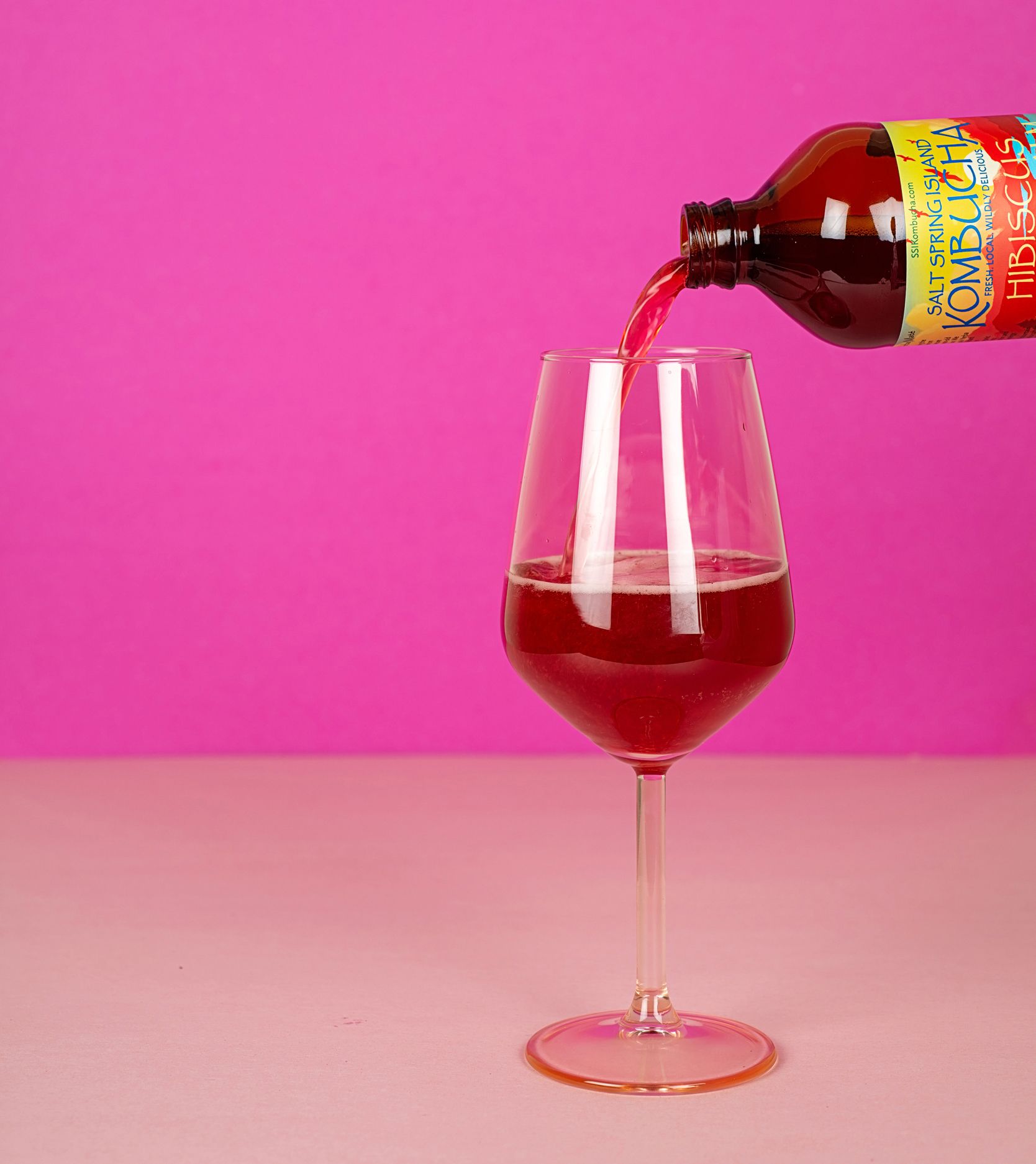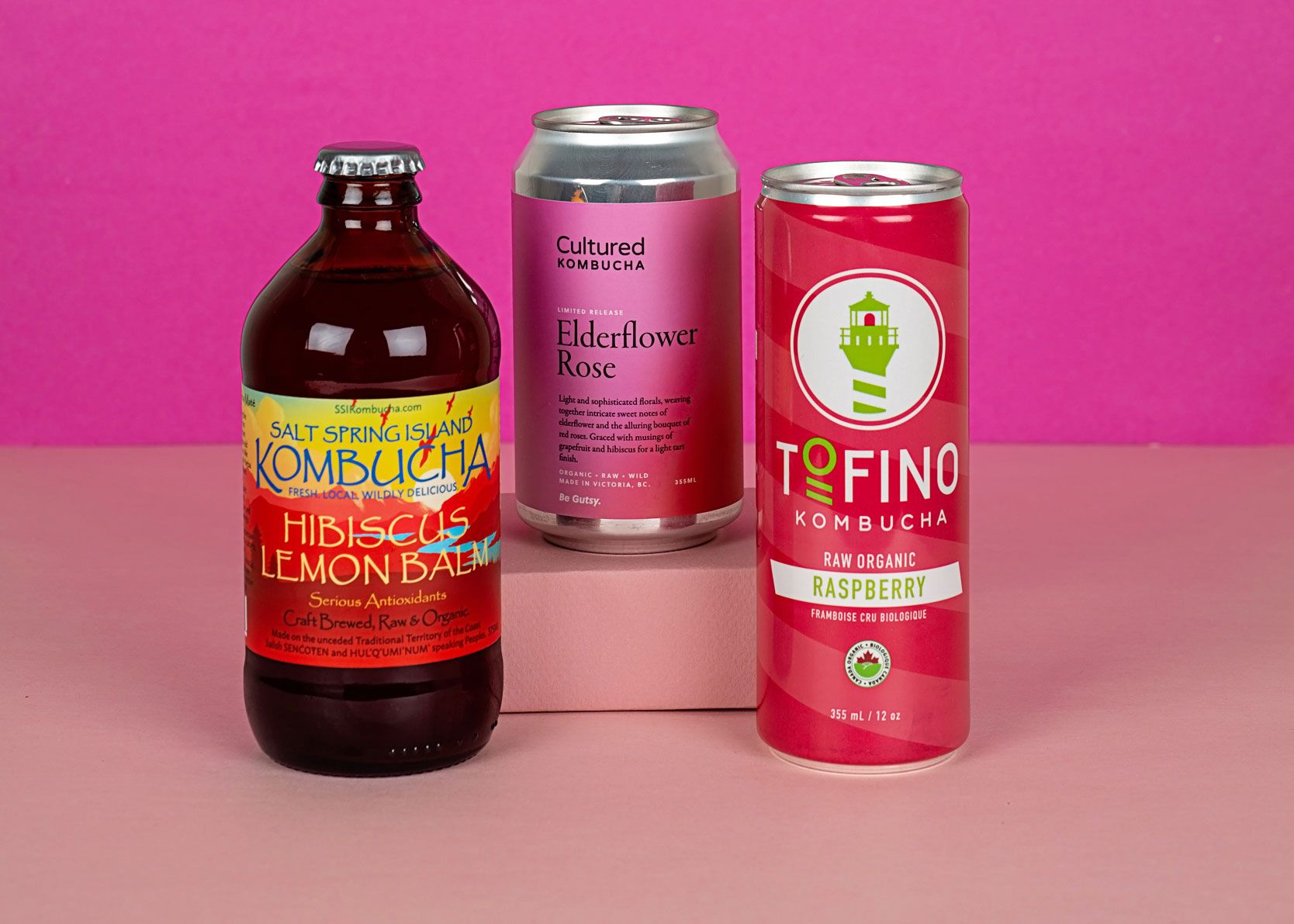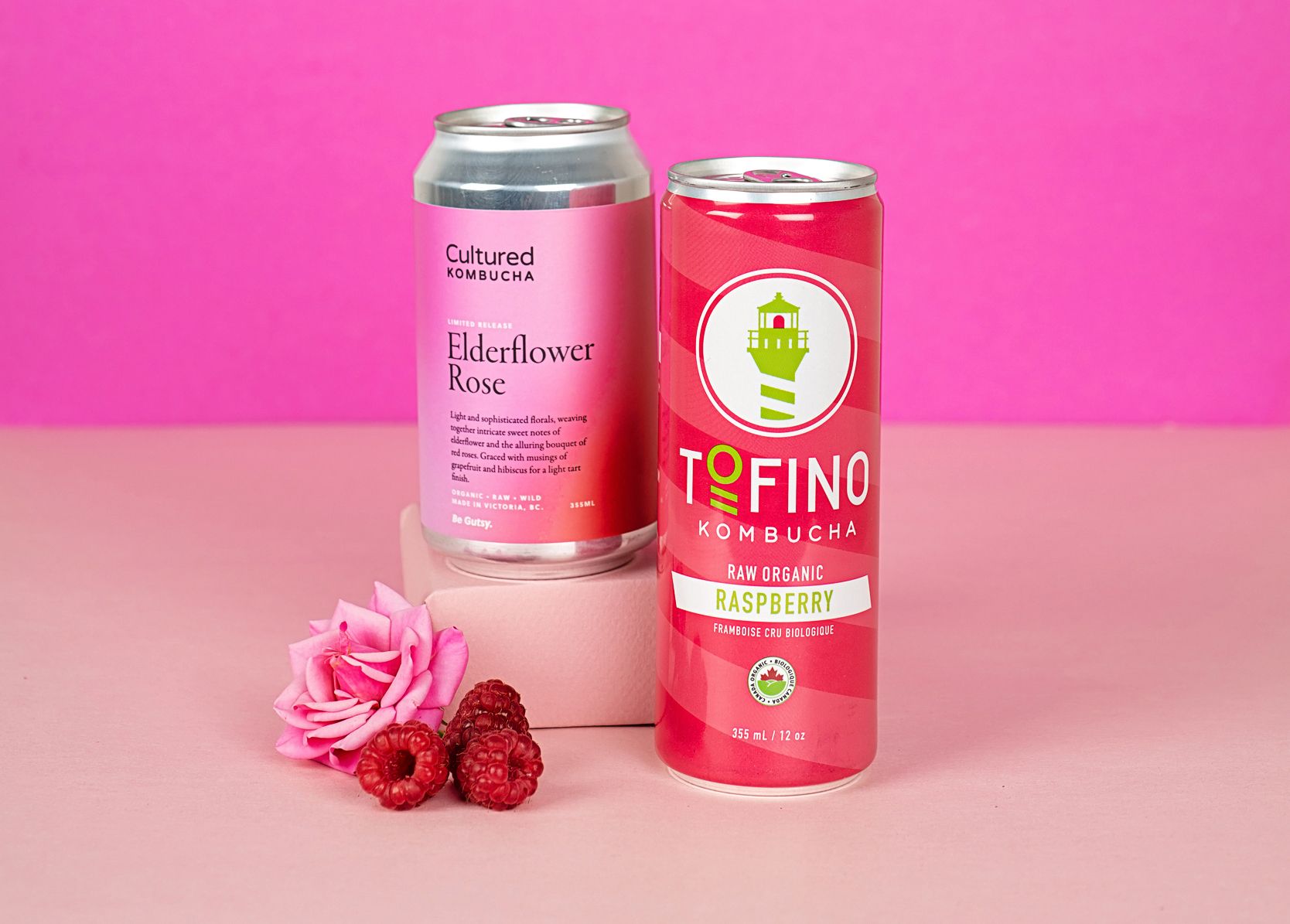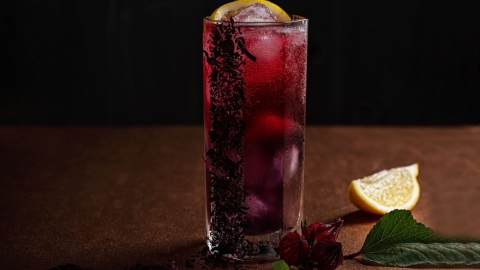Come One, Kombucha
It used to be that a young mom looking to make a little extra money might consider selling Avon or Tupperware®. But now there’s a new homegrown business model.
“A lot of kombucha makers all have the same story,” says Lea Weir, founder of Salt Spring Island Kombucha. She laughs. “My husband says it’s a lot of housewives making kombucha at home and thinking it was the best kombucha ever.”
Nine years ago, Weir was herself a young mother who started selling mason jars of homemade kombucha at the local farmers’ market. “I really felt that the combination of flavours I’d discovered was so good that I could not resist,” she says. And it’s how both Kelsey Hendricks of Tofino Kombucha and Christine Susut of Victoria’s Cultured Kombucha got into the business, too.
“I started drinking it and really enjoyed it, then I started making it myself and really got into it,” says Hendricks. In 2016, she was on maternity leave and started researching business plans; a year later, she launched Tofino Kombucha. “Before you knew it, I just did it.”
Susut was looking for a non-alcoholic alternative to cranberry soda while she was pregnant. Kombucha, she found, was like a classy cocktail that also seemed to help her myriad health problems. “I was a stay-at-home mom and I had a really good sleeper,” she recalls. “He would nap and I would write my business plan and develop my flavours and do my market research.” In 2015, she launched Cultured Kombucha.
A fermented tea beverage, you might think, is a nice hobby that would appeal to a small, niche market. You might want to think again.
Brewing success
Kombucha has been made for some 2,000 years, and most likely originated in China, where it has long been enjoyed for its reputed health benefits. But over the last decade, it has exploded in popularity.
According to the trade group Kombucha Brewers International, the category went from being worth about $1 million US in sales worldwide in 2014 to $1.84 billion US only five years later. It continues to grow at about 30% a year with the global market projected to top $10 billion US by 2027, according to Fortune Business Insights.
Clearly, kombucha isn’t just some sweet, fizzy, non-alcoholic soda pop.
“It’s tea, but it’s just like sourdough,” explains Hendricks. Just as sourdough bread is simply flour, water, salt and natural yeasts, kombucha is a fermented beverage of green or black tea, sugar and a symbiotic culture of bacteria and yeast (SCOBY), sometimes with flavours and carbonation added. “And that’s it.”
Adds Susut: “I always tell people, ‘Are you familiar with yogurt and are you familiar with sourdough?’ It’s similar because it uses the wild yeast that is in the environment. It just loves all the materials that are in tea.” Because of those naturally occurring yeasts, Susut says, “The kombucha made in your house will be different from the kombucha made anywhere else. I still find it magical. It’s so cool.”
Herbs, fruit, flowers
 “Unflavoured and uncarbonated, kombucha tastes just like apple cider,” says Hendricks. The natural acids that occur in kombucha add a light citrusy flavour to the sweetened tea, resulting in a well-balanced drink that is neither too sweet, too sour nor too bitter.
“Unflavoured and uncarbonated, kombucha tastes just like apple cider,” says Hendricks. The natural acids that occur in kombucha add a light citrusy flavour to the sweetened tea, resulting in a well-balanced drink that is neither too sweet, too sour nor too bitter.
To that, kombucha makers add their own flavours from fruit, herbs, flowers and spices. They sometimes add more carbonation, too, although yeast naturally converts sugar to CO2.
Hendricks, for instance, offers flavours including Apple Honeybush, Turmeric Raspberry, Ginger Lemon, Jasmine Hibiscus and Apricot Rose, from concentrates she makes herself. She follows a long, three-stage fermentation “to bring out different character.” Her favourite right now is the new Apple Honeybush. “It’s got a delicate sweetness,” she says.
Susut, on the other hand, takes a more floral approach, with flavours including Citrus Ginger, Nettles & Petals, Elderflower Rose and Strawberry Hibiscus. “I like to focus on what I can find around here so I work with local foragers and local farms,” she says. “I have a background in herbology and if I can put some intention behind herbs that also have healing properties, I’m behind that.”
Over on Salt Spring Island, Weir looks to the ancient past for brewing techniques that add more depth and to her garden for flavours. Those include Wild Rose, Lavender Mint, Hibiscus Lemon Balm and Strawberry Mint, Cherry Ginger, as well as funkier flavours like the mushroomy Chaga Chai and Blue Algae.
Healthy growth
Flavour aside, one of the main attractions of kombucha is its alleged health benefits. “There’s a whole bunch of health benefits that people claim but I don’t have third-party proof,” Hendricks says cautiously. “But the feedback I get from people is it helps their digestion, or it helps them sleep.”
The beneficial bacteria in kombucha are said to be probiotic, and that’s what initially attracted Weir. “It was 100% that,” she says. “You’re a mom and you’re exhausted and you just want something to give you a little boost. I couldn’t believe how good I felt. I didn’t feel like I was buzzed. I just felt really present.”
Susut also got into kombucha for its health benefits. “I was sick, but nothing that could be diagnosed. I was low on energy and my digestion was bad,” she says. “I did my research and it came back to my gut. I discovered probiotics and it changed my life.” Probiotics led her to fermented foods, which have been found to increase the diversity of gut microbes, and then to kombucha. Now she’s selling Cultured Kombucha all over Vancouver Island, as far north as Campbell River. “Healthy things can taste good,” she says.
Weir’s Salt Spring Island Kombucha, meanwhile, is available all over Vancouver Island, Vancouver and across the Gulf Islands. And Hendricks has expanded from the back half of her family garage to a fully staffed warehouse next to Tofino’s distillery and brewery. Every year she doubles production and sells Tofino Kombucha right across B.C.
Kombucha, clearly, is a product whose popularity continues to grow—you could say it’s fermenting—for a myriad of reasons. As Hendricks says, “Everyone has a different story of why they like it.”







